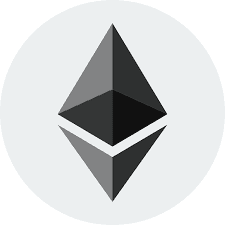Small businesses are the heartbeat of Nigeria’s economy, from wig stylists in Akwa Ibom to pastry chefs in Port Harcourt. But yet, many still rely on cash-only sales, paper records, and expensive middlemen.
Blockchain and DeFi are the future of running lean, open, world-ready businesses. This guide explains how Nigerian small businesses can take advantage of blockchain platforms to transform their business.
Key Insights
- Blockchain offers small Nigerian businesses secure, transparent, and fast payment methods without relying on traditional banks.
- DeFi enables entrepreneurs to access financial services like lending and staking directly, removing costly intermediaries.
- Choosing the right blockchain—like Ethereum, BNB Chain, Polygon, or Celo—depends on your business needs for speed, fees, and ease of use.
- Starting with a crypto wallet and stablecoins is a practical first step for Nigerian businesses to explore blockchain benefits safely.
What is Blockchain?

A blockchain is a decentralized, tamper-proof ledger of transactions. Every sale, payment or contract is recorded in blocks that anyone can verify, which no one can tamper with.
Here are the things to note when it comes to Blockchain:
- Immutable records: No more lost receipts or creative bookkeeping. Every record and transaction is stored and secure, with the help of nodes in Blockchains.
- Direct peer-to-peer payments: It accepts transactions between friends. Maybe your cousin wants to loan you money or send you money; it’s all accepted in Blockchain.
- Built-in trust: Customers see proof of authenticity and provenance. Let’s use Zenith Bank as an example. You receive receipts for each transaction carried out, but most times errors could occur — maybe delays or your money pending for more than a day, which drives you to the bank to make findings. In blockchain’s case, you don’t need to stress yourself going to your blockchain platform. Automatic processes are carried out, not by humans but by automated systems, with no breakdown of electricity or vault issues.
- Global Reach: Instantly interact with partners and customers worldwide. In this Blockchain, you can communicate, bridge, swap, and more.
So with every detailed information given, which would you choose to ease your life and learn to adapt?
What is DeFi and How Does It Empower Your Business?

There’s a definition for DeFi (Decentralized Finance) in Blockchain and why you will need it for any small business you want to start in Nigeria.
DeFi uses smart contracts on blockchains to recreate traditional financial services without the need for real banks or middlemen. Think of it as an “open bank” anyone can access.
DeFi is meant for business just like a real bank, but there’s more ownership and freedom here because it’s “decentralized,” not “centralized.” In DeFi you can lend, borrow, stake, bridge, and more.
Nigeria’s Current Economic Context
Let’s take a little overview of the country’s present economy: Nigeria’s naira is tumbling (over 76% devaluation since mid‑2023) and inflation is soaring (around 34.6% by late 2024). Many business owners are turning to blockchain’s stablecoins (crypto tied to dollars/euros) to protect their earnings.
Plus, most Nigerians use smartphones for almost everything, so blockchain is mobile-friendly, and you could own a crypto wallet with your mobile phone (like Celo’s Valora). Truth be told, blockchain tools are surprisingly accessible.
From the definitions given earlier on “DEFI” and “Blockchain”: blockchain and DeFi can help small shops, salons, and hustles hedge against the naira’s ups and downs, pay suppliers cheaply, reach customers abroad, and even crowd-fund growth without heavy bank fees.
As a Nigerian businessman/woman, with the rapid increase in blockchain evolution each day, you might want to consider specific blockchains to use for your business.
Best Blockchain for Nigerian Small Businesses
Blockchain might sound like tech jargon, but for everyday entrepreneurs in Nigeria, it’s simply a way to move and manage money more efficiently. Considering how business levels upgrade each year, the future of business seems to advance, and I see Blockchain as the new evolution for years to come. Businessmen and women must adapt to this.
Now picture a public digital ledger (like a shared notebook) that everyone can see and trust. This means that you can receive payments instantly from anywhere in the world, whether from friends or business clients, and save value in stable digital currencies like USDT, among other options. You can even access loans without a bank middleman (or a guarantor).
First, you must understand that each blockchain has specific capabilities related to speed, fees, and tools. Here are eight popular networks well-suited for Nigerian small businesses:
1. Ethereum (ETH)

Ethereum is the oldest smart-contract platform. It has the biggest ecosystem (thousands of apps) and supports nearly all stablecoins (USDC, USDT, DAI, etc.). This means users can issue tokens or accept payments.
However, Ethereum can be slow (~12-second blocks, ~17 transactions per second). When there are too many transactions occurring, gas fees can spike, making it expensive for daily transfers.
Use Case: A Lagos fashion retailer could accept USDC on Ethereum from diaspora customers. Since USDT/USDC is common for most business people, I’ll recommend it for small business owners in Nigeria while learning the whole process of Blockchain, then swap some for Naira.
2. BNB Smart Chain (BSC)

Now called BNB Chain, this is Binance’s EVM-compatible chain. It inherits Ethereum’s tooling but with much cheaper fees and faster blocks (~1.5s block time, ~70 TPS). It runs PancakeSwap (a Uniswap clone) and Venus (lending), so you can trade and earn yields with tiny fees (often cents). BSC uses a proof-of-staked authority consensus, so it’s very fast.
Downsides: It’s more centralized around Binance, and sometimes network upgrades or politics can matter.
Tools: Metamask (set to BSC), Trust Wallet, Binance Wallet.
Use Case: A small Lagos startup can easily swap BUSD stablecoins or stake in yield farms on BSC.
Staking: Locking up your coin or money for a certain number of days to get interest and double income. Many Nigerians use BUSD or USDT on BSC to send money to friends cheaply.
3. Polygon (MATIC)

Most people prefer Polygon in many areas. It’s like a fast lane for Ethereum, giving sub-second transactions (block time ≈2.1s) at low cost.
Wallets: Metamask, Coinbase Wallet, etc. You can switch from ETH network to Polygon like switching from MTN to Airtel.
Polygon supports many DeFi apps (Quickswap, Aave, Sushi) and NFTs like OpenSea, Axie, etc.
Use Case: A digital artist selling crafts to overseas buyers could issue an NFT on Polygon and get paid in MATIC or USDC with minimal fees. Or you run a shipping business where you deliver goods globally and get paid using Polygon with fast transactions and low charges. Would you recommend Polygon?
4. Solana (SOL)

Known for extreme speed and cheapness, Solana uses a unique Proof-of-History system. It processes blocks in ~0.4 seconds and can handle thousands of TPS. Transaction costs are a tiny fraction of a cent.
DeFi on Solana: Serum, Raydium, Jupiter are recommended tools. You can swap or lend cheaply and there are stablecoins like USDT and USDC.
Solana’s ecosystem includes many NFT and Web3 projects.
Use Case: A local grocery or clinic could accept SOL payments using a smartphone app, or a logistics startup could tokenize prepaid plans. Its low fees let even a small taxi service send tokens to drivers for referrals. Everything works easily with a mobile smartphone, just like you use it to interact with OPAY, Moniepoint, etc.
5. Stellar (XLM)

Stellar is a chain built for low-cost payments and boasts ~94 transactions per second — more flexible than Ethereum. Fees are minuscule (like 0.00001 XLM per transaction).
Many companies, including those in Africa, use Stellar anchors/stablecoins for cross-border money movement. For example, Nigerian fintech has piloted NGNT (a naira-pegged token) on Stellar for instant Naira transfers.
Stellar’s built-in decentralized exchange lets you convert one currency to another in one transaction.
Tools: StellarTerm or mobile wallets.
Use Case: An Akwa-Ibom import-export trader could accept USDC or NGNT on Stellar and instantly convert to Naira with a few clicks. Cross-border payments like supplying to a client in Ghana in cedis tokens are fast, secure, transparent, and avoid bank delays.
6. Algorand (ALGO)

Algorand uses pure proof of stake, focusing mainly on finance. Fees are tiny (fractions of a cent), and the network is reliable. Algorand is used by governments and companies for digital bonds and payments. Circle launched USDC on Algorand for fast, low-fee transfers.
Tools: Pera and My Algo wallets.
Use Case: A service-based business (like a salon in Akwa Ibom State) could hold USDC on Algorand to avoid naira inflation. It’s a safe chain for holding value.
7. Celo

Celo is mobile-first; every wallet can be tied to a phone number rather than a long address, making it easier for non-technical users (ideal in mobile-centric Nigeria). It has fast 1-second blocks and instant finality with very low fees.
Celo’s standout feature is built-in stablecoins. For businesses, this means you can pay or get paid in cUSD without touching volatile crypto.
Tools: Valora (Celo’s smartphone wallet) and CeloExtension.
Use Case: An artisan or food vendor could quickly pay a small supplier in cUSD via Valora. Celo also partners with local fintech to create community-based loans or savings apps, so a small business could join a village lending pool on Celo or stake to get high yields.
8. Avalanche (AVAX)

Avalanche is a high-performance platform with sub-second finality (around 1–2 seconds). It uses a special consensus to achieve high throughput (TPS can be over 120,000 in theory, but typically modest). Avalanche supports EVM contracts (on its C-Chain), so you get Ethereum-like tools plus speed.
Some DeFi apps like Pangolin and BENQ run on Avalanche. You can develop subnet chains for internal business networks if necessary.
Use Case: Any businessperson in Nigeria could use Avalanche to issue stablecoins or payment tokens. For example, a mobile money operator could launch an internal AVAX-based token for microloans among its clients.
The key is very fast settlement — transactions are confirmed almost instantly.
Real Steps to Get Started
1. Set up a Crypto Wallet
Pick one per blockchain. Examples:
- For Ethereum/BSC/Polygon: Metamask is popular and free.
- For Solana: Phantom or Solflare (mobile and desktop).
- For Stellar: Lobstr or Solar Wallet.
- For Algorand: Pera or MyAlgo.
- For Celo: Valora (on iOS/Android).
Popular wallet options include: Solflare, Trust Wallet, Coinbase, Phantom.
Note: Always back up your seed phrase manually on paper. You can back it up through Google Drive, but preferable is manually on paper, and never share it. Watch out for scams requesting it; if you provide it, you risk going bankrupt.
This wallet will let you send/receive tokens as well.
2. Acquire Some Crypto or Stablecoins
You can use local crypto exchanges (if any allow deposits). Coinbase is good for that or P2P platforms. Many Nigerians peer-swap Naira for USDT or BTC on Paxful or Binance P2P (though banks have restrictions).
As a businessperson, start with a small amount of stablecoin (USDC, USDT) on a chain of your choice. For example, get some USDC on Solana or Binance BSC. You may use an international exchange’s wallet to send to your wallet. Practice to get familiar with tools.
Always double-check the correct wallet address and network before any transaction to avoid loss.
3. Swap Tokens on a Decentralized Exchange (DEX)
Once you have crypto (ETH, USDT, etc.), try swapping on a DEX:
- For Ethereum or Polygon: use Uniswap or Quickswap.
- On BSC: use PancakeSwap.
- On Solana: try Jupiter (aggregator) or Raydium.
Options include: Uniswap, Coinbase, PancakeSwap, etc.
Learn how to exchange tokens (e.g., USDT for ETH). Watch out for slippage and scams.
4. Try a Simple DeFi Action
Practice lending or staking a stablecoin to earn some yield. For example, supply USDC to Aave or Compound on Ethereum or Polygon and watch interest accrue.
This shows how to make idle crypto work as “digital savings accounts.” Start small and be cautious — this is not financial advice.
5. Experiment with Issuing a Token
If you run a local shop, create a loyalty token on Ethereum or BSC (ERC-20 or BEP-20). Tools like TokenMint or Remix IDE tutorials can help. Tokens can represent gift vouchers or memberships. For example, a salon could issue “BeautyCoin” to reward referrals.
Be cautious: regulatory views on crypto in Nigeria are still evolving.
Tips and Safety
- Start slowly with small amounts on-chain until comfortable.
- Use testnets (blockchain test environments) to practice without real money.
- Beware phishing and scams; only use official sites and double-check URLs.
- Don’t trust unknown “giveaway” links on Telegram or other platforms.
- Use stablecoins wisely to protect earnings from naira inflation but know how to convert back to cash.
- Follow Nigerian regulations. The Central Bank now allows crypto businesses to register.
Read Also
Understanding Trade Finance in Global Business
What is Debt Finance and How Can it Boost Your Business Productivity
Finance: Meaning, Types, Functions and Sources of Finance
15 Best Virtual Payment Platforms to Use for Your Business
Conclusion
Blockchain might still be new in Nigeria, but the opportunities are real to adapt to these systems. By using any chain listed of your choice to run your business, you bring value and find new ways to financial growth. Take each step at a time — start by accepting crypto payments or swapping a bit of Naira for USDC and gradually grow.
As one expert put it, “Stablecoins and DeFi provide a way to bypass high costs of legacy finance. You can send and receive money faster and retain most of the monetary value.” Deciding which tools to use and making good advantage of them helps you adapt, as you seek financial growth and creative ways to use Blockchain, crypto, and DeFi to run business in Nigeria.
“Do you want to be ahead of your competition with our bespoke web development services? We are the right solution! Reach out to us, and skyrocket your brand presence.”
